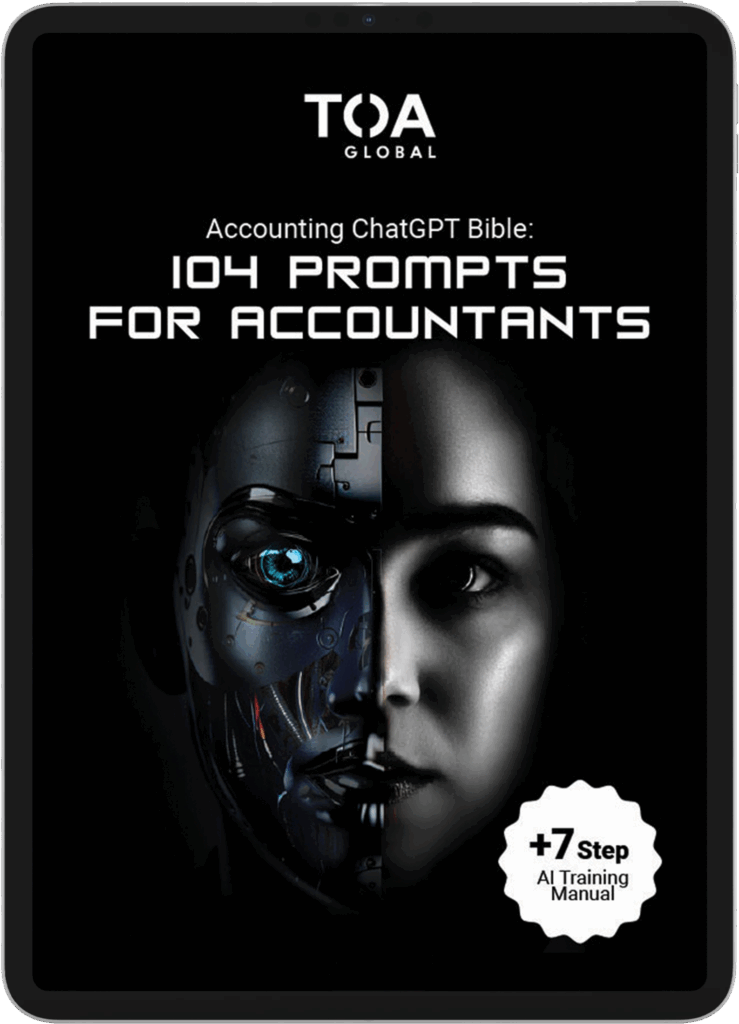Today’s workplace looks remarkably different from the way it did a few years ago. We’ve seen companies in every sector have to learn to change and adapt very quickly to keep up in an era of instability and evolving technology. In 2022, the human aspect of most businesses was greatly affected by disruptions in the labor market and the Great Resignation.
Technologically, the accounting industry has proceeded to change, with developments in software, cloud computing, artificial intelligence, and complex computer systems. Most notably, lower-margin accounting tasks are being replaced by technology and changing the way firms operate.
The significance of staying up to date with accounting trends
While change is constant and trends come and go, it’s important for firm owners to pay close attention to innovations in order to position their businesses to get a competitive edge so they can continue to scale.
Keeping up to date with industry trends allows you to map out growth strategies and stay ahead, so you can maximize profitability and success in your business.
According to Fortune Business Insights, by the end of 2026, the global accounting software market is projected to reach $20 million. Approximately 70% of companies that have automated more than one quarter of their accounting functions have reported moderate or substantial return on investment.
We’ll be taking a look at what we believe to be the changes and trends to expect going into 2023.
Digital transformation for differentiated results
Business owners will continue to invest in strategies for digital transformation and adopt new technologies to see increased operational efficiencies and improved customer experience. In a study by Deloitte, 80% of firm owners reported that, since implementing digital transformation strategies, they had experienced a strengthening in firm culture.
The connection between technology adoption and customer satisfaction shows that by leaning into the advantages of digital transformation, business leaders can improve overall business operations, increase employee satisfaction, and create impactful results throughout various areas of their business.
Diversified skills sets
The changing landscape calls for broader skills sets. To keep up with transformations, digital and otherwise, firm owners are starting to see the value in talent that offers diverse skills sets, and they’re providing employees with opportunities to develop human skills alongside technical.
The success of an accountant is becoming more reliant on their ability to not only use and understand technology but to communicate effectively and build lasting relationships with clients. Being able to just do the work is no longer enough. Financial experts need to be able to communicate their processes, explain complex concepts to clients, and communicate valuable insights to people who may not have financial backgrounds. This requires constant development through training and upskilling.
According to TOA Global Founder Nick Sinclair, “As we go into economic crises such as recessions, governments will require that accounting firms be involved in helping their clients understand how to successfully navigate these events.”
Data Security
Electronic data sharing between clients and accounting firms poses the risk of security breaches and hacks. Hackers have become quite sophisticated in their attacks, with small and medium-sized businesses (SMBs) the most vulnerable to cyber security threats and ransomware.
With the amount of confidential financial data accounting firms work with, a breach such as this one would have monumental consequences, threatening millions with identity theft.
In an accounting firm survey conducted by CyberCatch, a leading market insights company, 75% of the 1,200 SMBs surveyed reported that they would survive only three to seven days from a ransomware attack, and 30% reported that they did not have an incident response plan in place to respond to cyberattacks.
Accounting firm owners will need to invest in cybersecurity controls and provide adequate cybersecurity training to their employees to decrease the risk of exposure to threats. Focusing on data security significantly decreases risk of exposure. One way that business leaders are doing this is through cloud-based software, which we’ll look into next.
Cloud-based accounting
A lot of businesses are still utilizing manual processes for accounting, but with the increase in technological advancements, many have made the shift toward cloud-based systems. The Chief Technology Officer for Cloud Accounting at IBM, Kristof Kloeckner, estimates that cloud-based accounting reduces IT labor costs by up to 50%, improves capital utilization by 75%, and reduces provisioning from weeks to minutes.
Nick Sinclair believes there has been a shift in the industry from on-premise software to cloud-based software, “The reality is you need cloud-based systems as much as possible rather than on-premise. They’re easier to maintain and they’re easier to upgrade.” Other advantages include security, remote tracking of sales and inventory, and digital workflows.
It is projected that, by 2023, the cloud accounting market could reach $4.25 billion. This solution is cost-effective and highly accessible worldwide, and many business owners feel that it simplifies business processes. Around 58% of large accounting firms use cloud-based accounting software, while 82% of small businesses use this solution.
Outsourced accounting
With the Great Resignation and talent shortage projected to continue in 2023, attracting and retaining talent in this labor market continues to be challenging. Firm owners are broadening their search for highly-skilled talent and hiring internationally outsourcing team members.
Outsourcing accounting functions allow employers to delegate routine compliance work to a global team of accountants, while the local team takes on the responsibility of higher-level tasks. This results in increased productivity, a healthy work-life balance, better employee job satisfaction, and ultimately maximizing profits.
Partnering with a global talent solutions provider results in greater capacity and efficiency, which is why many business owners are choosing to outsource.
Embracing innovation
Keeping an eye on industry trends helps firm owners to stay ahead of the curve. Until recently, accounting industry trends were focused almost exclusively on the adoption of new technologies, but as attracting and retaining talent have become more difficult, we have started to see a shift towards human development as well. There is now an increased understanding of the value of focusing on the people behind the work in order to achieve success in business.
According to Nick, firm owners should be open to embracing new developments and trends, but also mindful of the differences between passing trends and those worth adopting, while also maintaining focus on their people and customers who make the business what it is. “It’s about firms having the time and ability to really look at their systems, processes and internal technology use, and implementing measures that make the experience with the customer better, while also making it more internally efficient. I think that’s really where firms need to focus.”
TOA Global is a leading global talent solution. Book a chat with us to find out how outsourced accounting can help your business scale with our free outsourcing strategy.

















